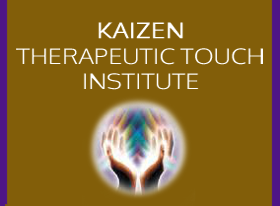 Project management is a discipline with an extensive body of knowledge that has evolved through project management practices over time. A Guide to the Project Management Body of Knowledge first published in 1996 by the Project Management Institute (PMI) incorporated in 1969. Projects range in complexity from sending a man to the moon to organizing a wedding anniversary in Tuscany to planning for end of life .
Project management is a discipline with an extensive body of knowledge that has evolved through project management practices over time. A Guide to the Project Management Body of Knowledge first published in 1996 by the Project Management Institute (PMI) incorporated in 1969. Projects range in complexity from sending a man to the moon to organizing a wedding anniversary in Tuscany to planning for end of life .
Premises
There are four primary constraints that require continual balancing and attention in effective project management. They are project scope, time, quality and budget. All projects proceed through stages of initiating, planning, executing, controlling, and closing the work of a project team who collaborate to achieve specific goals with identified success criteria within a specified period of time.
Application to Kaizen Leadership Institute Practices
I developed project management competencies over decades of producing community eco-arts festivals, large scale, international youth leadership development camps, theatre productions and tours, conferences on women’s mental health in the workplace, eco-action and Therapeutic Touch awareness campaigns, as well as weddings and memorial services.
I think of life, as an event….when we begin with the end in mind, we connect to our purpose – to what matters most – that’s leadership. Once we know what we want, we begin to define it – a highly creative process…that takes us right into project management. As a coach, I have access a host of project management techniques and solid methodologies to help my clients get things done, step by step moving them through the project management stages from dream to vision to plan to needs analysis, team building, delegation, communications and execution – a structured process that enables the experience of “FLOW” towards project realization, celebration and evaluation. So very rewarding!
Feedback
I consider myself a fairly organized and productive person, but task and project management is a continuous improvement practice. What Julia’s coaching helped me with most was stepping back to see the forest, not just the trees, so I could set personal goals and identify what values drive these, assess my current reality with regards to the realization of these goals and determine some short term steps to take towards their realization.
It was support on the personal level that I needed, because I am usually so caught up with prioritizing professional and family commitments first.
Julia introduced me to several time and effort management principles that still guide me. Among them are:
- Identify your peak productivity and learn how to work more effectively during these times.
- Control perfectionism and gain the understanding that some things are best done “good enough.”
- Discover discipline techniques to avoid cramming so much in that I wait until the last minute to leave for appointments.
- Determine when speed is actually counterproductive and learn how to slow down when necessary. Breathe!
- Decide what you need to accomplish each day so that interruptions don’t dictate your schedule.
- Be mindful of how you are spending your time each day.
The RASCI model, Julia introduced me to – so useful for assigning roles and responsibilities to a series of activities or tasks for the organization – has had a huge impact. The RASCI model helps you focus on the team or network needed to complete the task or activity successfully. It is a really valuable task management and organizational development tool from Julia’s extensive project management tool box, enabling more effective staff, board and committee collaboration and productivity.
Veronica Feihl
Manager, Roncesvalles Village BIA
March 2018
Connect with me and let’s get started.
Related Articles:
From Dream to Realization with SMART Goals
Overcoming Hurdles Success Training
Taking Your Business to the Next Level





